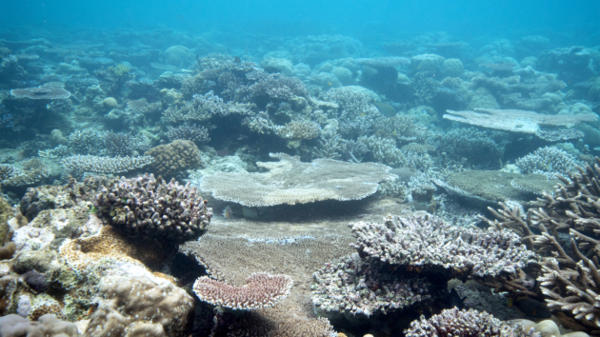Similar to forests on land, the most important source of energy for tropical shallow water coral reefs is light. Photosynthetic algae, called zooxanthellae, live within the tissues of reef-building corals and provide them with oxygen and the products of photosynthesis, including glucose and amino acids. The corals, in turn, use these products as the energy source for building calcium carbonate skeletons and growing more living tissue. Other ecologically important reef organisms, such as macroalgae and turf algae, depend on light for growth and reproduction as well, making light the driving force behind the growth and overall productivity of coral reef ecosystems.
The Next Generation of Scientists Begin Work at BIOS
June 28, 2019
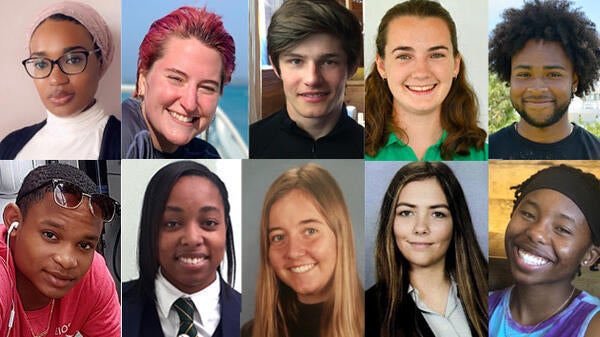
Each year a handful of Bermudian students are selected to participate in the BIOS Bermuda Program. This program, which began in 1976, offers students aged 18 and older the opportunity to broaden their knowledge of marine and atmospheric sciences by working on a specific project of interest alongside BIOS scientists in both field and laboratory settings.
A Semester Abroad at BIOS
January 26, 2020
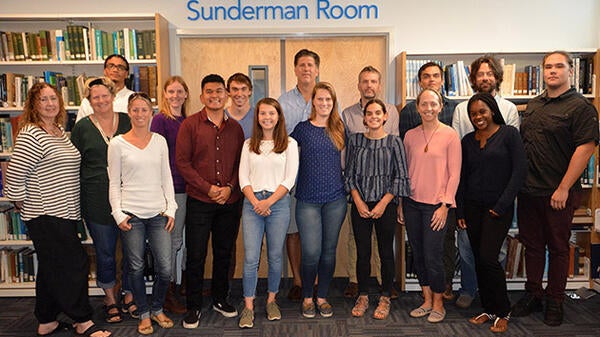
Since 1987, the National Science Foundation (NSF) has funded a research internship for undergraduate students called the Research Experiences for Undergraduates (REU) program. The internships, which usually run for 10 to 12 weeks, are hosted at universities, research institutions, and professional scientific organizations and allow participants to work alongside faculty members and scientists on research projects in a wide range of science, technology, engineering, and mathematics (STEM) fields.
BIOS Scientists Gather for Ocean Sciences Meeting
March 30, 2020
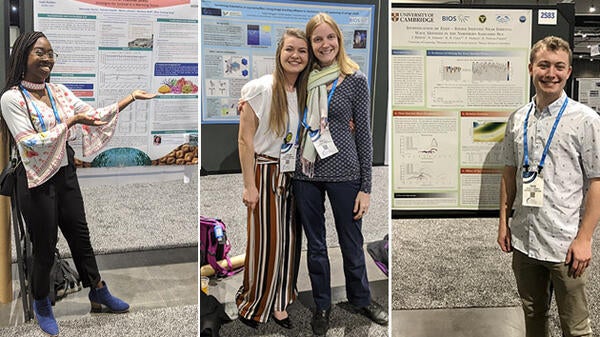
Researchers and students representing BIOS gathered in San Diego, California, in mid-February to participate in the biennial Ocean Sciences meeting. The flagship conference, held jointly by the Oceanography Society, the American Society of Limnology and Oceanography, and the American Geophysical Union, attracted nearly 5,000 scientists, managers, and educators from around the globe.
Does Sunscreen Mean Trouble in Paradise?
March 30, 2020
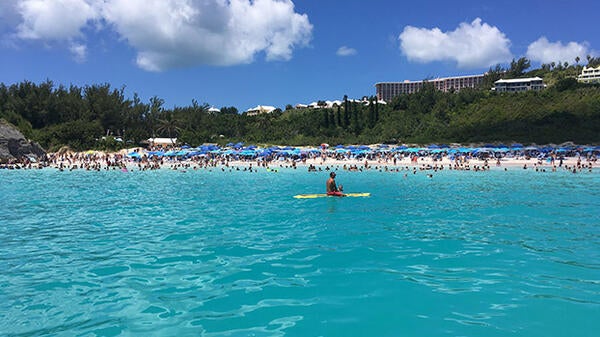
New research is shedding light on the impact of oxybenzone, a chemical filter found in many sunscreens, on Bermuda’s coral reefs. With funding from the Bermuda Government Department of Nature and Environmental Resources and NASA, a team of researchers at BIOS, led by senior scientist and coral reef ecologist Eric Hochberg, conducted a study to characterize the presence of oxybenzone, or benzophenone-3, in Bermuda’s nearshore waters, as well as the impacts on corals from long-term, low-dose exposure to the chemical.
A Fruitful Partnership
June 30, 2020
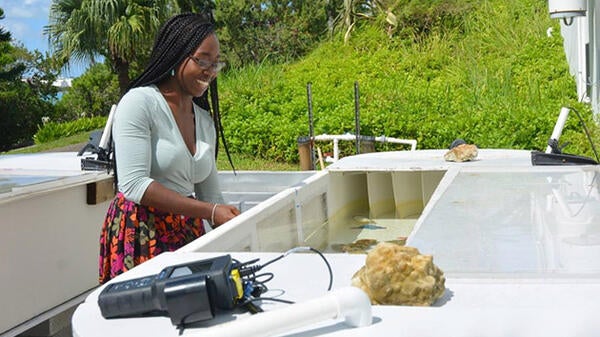
In summer 2018, undergraduate student Moronke Harris came to BIOS from the University of Guelph in Ontario, Canada to pursue what had been a years-long ambition: oceanographic research. Through a Canadian Associates of BIOS (CABIOS) internship, she spent three months engaged in a geo-engineering project seeking potential solutions for coral reef bleaching.
A New Approach to Quantifying the Metabolic Rates of Coral
May 28, 2020
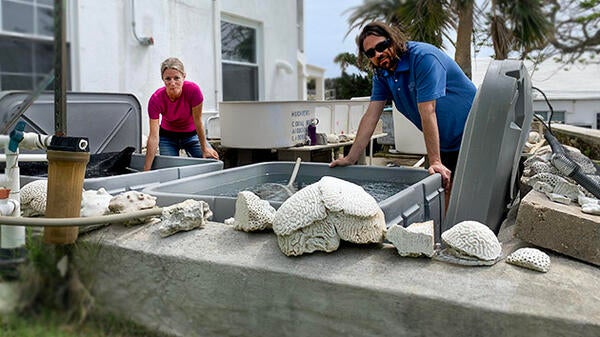
BIOS assistant scientist Yvonne Sawall and research specialist Tim Noyes were chosen in early 2020 from among five applicants to receive funding from the Cawthorn Innovation Award for a project designed to advance understanding of the metabolic rates of corals and other reef organisms. The award was established in 2016 by trustee emeritus Rob Cawthorn to support innovative and challenging research ideas among scientists at BIOS.
